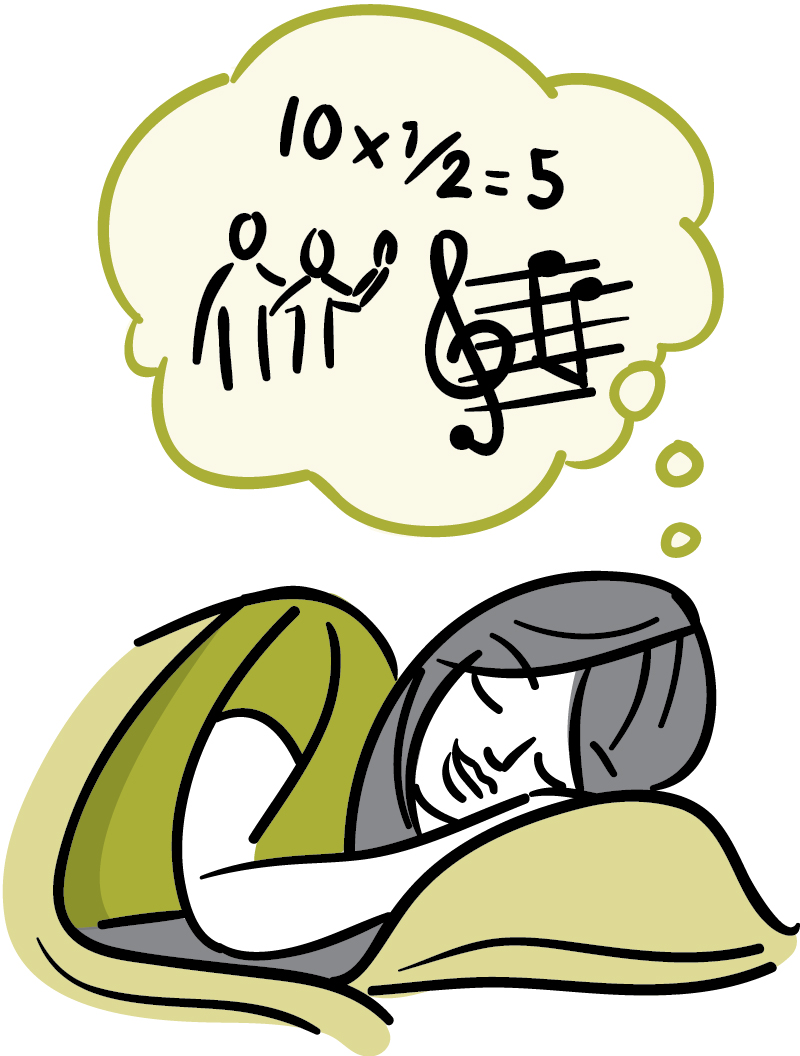
—
Title: The Two-Fold Function of Sleep: How Our Brains Fortify Memories and Gird for New Learning During Slumber
In an innovative study, Japanese neuroscientists have revealed a novel aspect of sleep’s function: it not only solidifies past memories but also actively equips the brain for forthcoming learning. This research, spearheaded by Distinguished Professor Kaoru Inokuchi at the University of Toyama, significantly broadens our comprehension of the complex mechanisms at play during sleep — with far-reaching implications for education, cognitive enhancement, and overall brain wellness.
Published on April 28 in Nature Communications, the findings indicate that sleep is anything but a passive state; it is a vibrant phase where the mind reconfigures itself, connecting the past and the future through intricate neural processes.
■ Monitoring Memory Processing at the Neuronal Level
Employing cutting-edge calcium imaging techniques, the researchers tracked individual neurons in mice in real-time as they moved through the stages before, during, and after a learning experience. Their discoveries unveiled two distinct yet concurrent processes occurring during post-learning sleep:
– Existing memory cells, referred to as “engram cells,” were reactivated to reinforce memories of previous experiences.
– At the same time, another group of neurons, labeled “engram-to-be cells,” became increasingly synchronized, laying the groundwork for encoding future experiences.
This real-time observation illustrated that the brain does not segregate old and new learning; rather, both coexist during sleep, suggesting a sophisticated internal preparation system that equips the brain for ongoing learning.
■ Connecting Past and Future Memories
“Engram-to-be cells showed heightened coactivity with established engram cells during sleep,” notes Professor Inokuchi. This implies that a complex synchronization process between past memories and new potential memories occurs during rest. This “cross-talk” seems essential for constructing the neural framework needed for future learning challenges.
Deepening the investigation into these interactions, the research team created a computational model to emulate and clarify the underlying biological mechanisms. Significantly, they discovered that synaptic depression and scaling — processes that diminish or modify the strength of neural connections — are fundamental. These adjustments keep the brain adaptable and capable of creating new memories without being overwhelmed by previously accumulated information.
When they artificially interrupted these processes in their models, the mice exhibited a substantial loss in their capacity to prepare for future learning, highlighting sleep’s vital preparatory role.
■ Rethinking the Conventional Role of Sleep
This research disputes the standard categorization of sleep as merely a time for memory reinforcement. Instead, it frames sleep as a transformative phase for the brain’s learning machinery, a dual process that protects existing knowledge while enhancing the cognitive framework for future education.
“Sleep is not merely for rest—it plays a pivotal role in how the brain processes information,” stresses Professor Inokuchi. He hopes this research will encourage individuals to recognize the importance of quality, consistent sleep as a practical strategy for enhancing learning and long-term cognitive well-being.
■ Implications Beyond the Laboratory
The findings carry significant implications for students, educators, and professionals. Pulling all-nighters, neglecting sleep, or maintaining irregular sleep patterns may do more than leave individuals fatigued — it may actually undermine the brain’s capacity to retain previous information and impede its readiness for new knowledge.
This discovery also provides a potential neural rationale for the significant cognitive impairments observed in individuals experiencing chronic sleep deprivation, such as reduced learning abilities, slower problem-solving skills, and even long-term memory decline.
Considering these insights, fostering environments and routines that prioritize high-quality sleep could be among the most effective approaches to optimizing learning and performance throughout life.
■ Unlocking Future Potential
Looking forward, the researchers envisage promising applications for their findings. By intentionally altering sleep patterns or manipulating neural activity during sleep, it could one day be feasible to enhance memory formation or even address memory-related disorders.
“We believe that influencing brain activity during sleep or sleep patterns could unlock methods to boost memory by tapping into the brain’s untapped potential,” states Professor Inokuchi. These ambitious prospects pave the way for exciting advancements in educational technology, neuroscience, and mental health interventions.
■ Conclusion
The recent research from the University of Toyama reaffirms what many have intuitively sensed but lacked scientific validation: sleep is an active, dynamic state essential for cognitive vitality. It fortifies our understanding of the past and prepares our minds for the future — processes that unfold invisibly and continuously with every night’s rest.
As we further comprehend these mechanisms, it becomes increasingly evident that achieving sound sleep is not merely a luxury — it’s a critical foundation for learning, memory, and mental resilience.
■ Source:
– Nature Communications: (https://www.nature.com/articles/s41467-025-58860-w)
—
Support Independent Science Reporting: Make a Difference Today
If our reporting has informed or inspired you, please consider making a donation. Every contribution, regardless of size, empowers us to keep providing accurate, engaging, and reliable